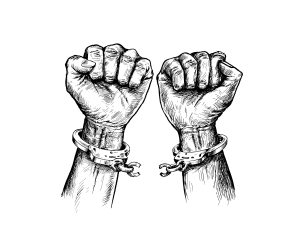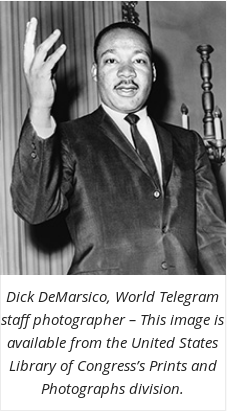 “The people of Texas are informed that, in accordance with a proclamation from the Executive of the United States, all slaves are free. This involves an absolute equality of personal rights and rights of property between former masters and slaves, and the connection heretofore existing between them becomes that between employer and hired labor.”
“The people of Texas are informed that, in accordance with a proclamation from the Executive of the United States, all slaves are free. This involves an absolute equality of personal rights and rights of property between former masters and slaves, and the connection heretofore existing between them becomes that between employer and hired labor.”
On June 19, 1865, two-and-a-half years after the issuance of the Emancipation Proclamation, Maj. Gen. Gordon Granger and his troops arrived in Galveston, TX to issue the above order freeing enslaved people in this, one of the last Confederate holdouts following the end of the Civil War.
On paper, the Emancipation Proclamation freed over 3.5 million enslaved people. For some, the end to slavery didn’t come swiftly. Not being told of their freedom, they remained in servitude for years. For others, this news came as a complete shock, finding themselves unable to envision a life outside of slavery. Still others immediately took to the roads, leaving their plantations to make a new life in the north.
“Now we are free. What do we want? We want education; we want protection; we want plenty of work; we want good pay for it, but not any more or less than anyone else…and then you will see the down-trodden race rise up. ” —John Adams, a former slave.
An evolving term, freedom for formerly enslaved people had a very different meaning than what we may be used to today. For them, freedom meant an end to “masters,” beatings, and the selling of spouses, children and family members. Freedom became their rallying cry, the promise of which pushed them to strive for opportunities to educate themselves and take their rightful place as full citizens.
Juneteenth (“June” + “19”) is the name given to subsequent annual celebrations following the date when enslaved people in Galveston, TX found out they were free. In the years that followed, formerly enslaved peoples used this date as a reason to celebrate, gather (or remember) lost family members, and to imbue in their next generation the values of knowing where they came from and self-improvement.
On this, the 155th Anniversary of Juneteenth, the Argonne African American Employee Resource Group celebrates this step in our ongoing and collective history of triumph over adversity. Every day, we look to Argonne’s Core Values as symbols of that same triumph.
With Respect, we welcome the perspectives of others and grow from shared experiences. With Teamwork, we leverage each other’s skills, working together to create the science that changes the world. And with Integrity, we exhibit respect for ourselves and adhere to a morality that lifts all and leaves none behind.
We welcome you to explore the resources and events below to find out more about Juneteenth and its meaning to black Americans.
Resources: Juneteenth: The American holiday is also known as Emancipation Day and Black Independence Day. (Live Science)
Events: Race in America: The Legacy of Juneteenth with Lonnie G. Bunch III


 “The people of Texas are informed that, in accordance with a proclamation from the Executive of the United States, all slaves are free. This involves an absolute equality of personal rights and rights of property between former masters and slaves, and the connection heretofore existing between them becomes that between employer and hired labor.”
“The people of Texas are informed that, in accordance with a proclamation from the Executive of the United States, all slaves are free. This involves an absolute equality of personal rights and rights of property between former masters and slaves, and the connection heretofore existing between them becomes that between employer and hired labor.”

